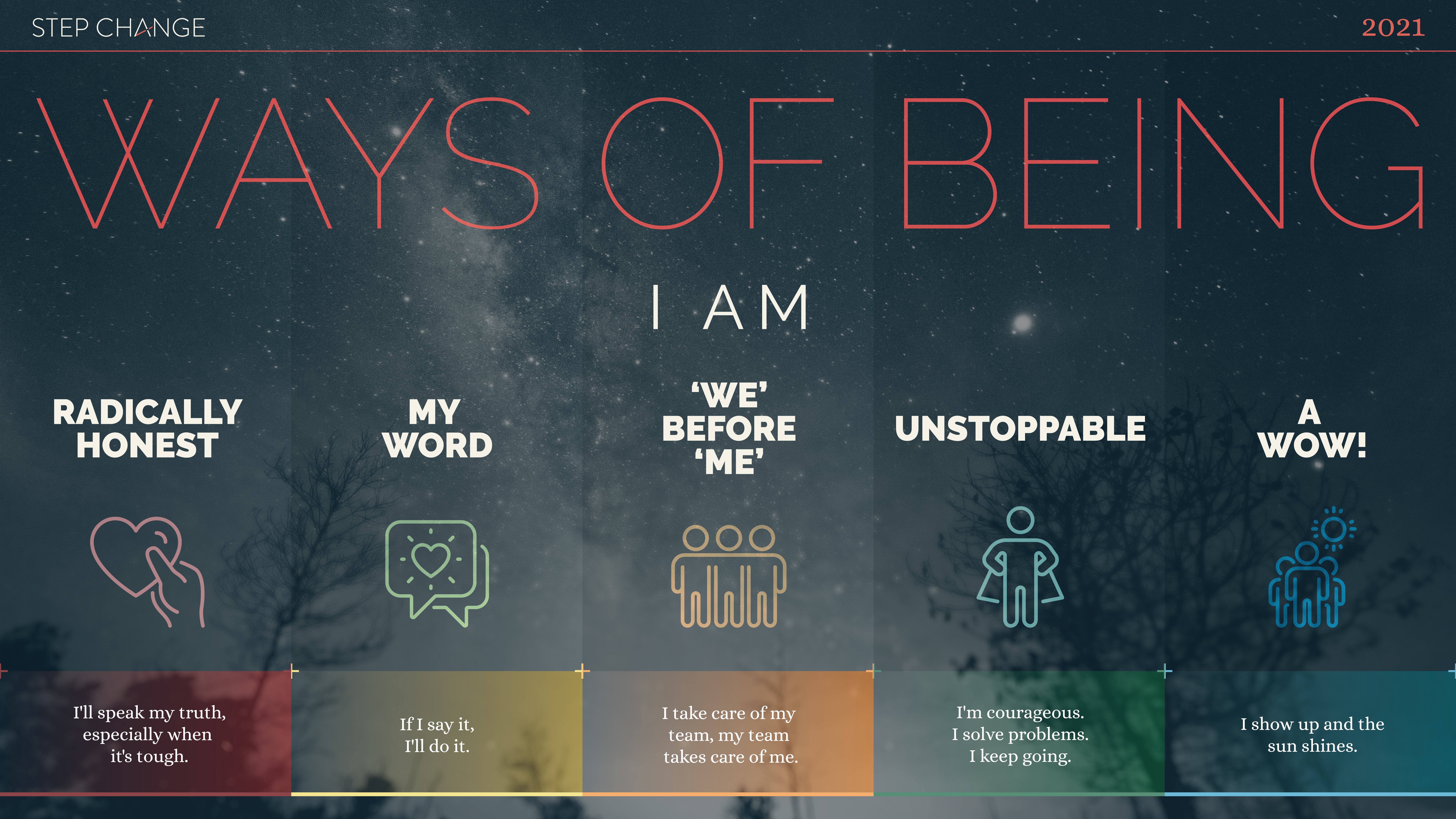It’s not always the best businesses that win. It’s the best marketing. Marketing is the lifeblood of the business. It allows you to know who your target customers are and form a relationship with them.
But as your business grows, building and maintaining great customer relationships become a challenge. This is where marketing automation proves to be helpful.
Insight: Businesses need to deliver relevant and personalised communications to take their target buyers from awareness to action.
Data: McKinsey Global Institute notes that across industries, over 30% of the tasks that make up 60% of today’s jobs can potentially be automated.
Key Action Point: Use marketing automation to scale outreach and conversions without scaling expenses alongside them.
How are successful companies growing in the modern business landscape? Automation. R&D automation, operations automation, marketing automation. Automation, automation, automation.
We specialise in marketing, so we’re going to focus on marketing automation, which can be one of your revenue drivers if you do it right.
Higher ROIs mean higher capital being dumped into R&D and marketing to facilitate acquisitions, more opportunities for technical advancements, and so on. The bottom line: business is doing more with less.
Let's take a look at why it should be part of your repertoire.
What Is Marketing Automation?
Marketing automation generally refers to the technology that allows for the automatic processing of repetitive tasks. The modern generation of automation technology is also useful for repetitive processes that involve personalised tasks.
Marketing automation allows marketers to save effort and time on rote tasks. Some of these tasks may include the following:
- Initial outreach emails
- Scraping leads from a website
- Scheduling and deploying newsletters
- Tracking visitors through website pages
- Build prospect scores and buyer profiles
- Segment leads into groups based on behaviour
- Collect contact information
There are many more things that an automation package can do, but these are some of the most common uses.
Why Is Marketing Automation Important for Business?
For most companies, marketing automation is leveraged to boost efficiency; create targeted, personalised communications; improve data collection; reduce lead conversion time; and improve sales KPIs.
Let’s dive into each one a bit deeper.
Boosts Efficiency
The less time that marketers have to spend on repetitive tasks, the more time they have to spend on the creative aspects of marketing that require and take up more time in the workday.
Marketing automation also helps to increase efficiency through boosting morale. High-level professionals are happy to be free of low-level tasks, and great performance usually follows suit.
Salespeople experience higher efficiency as well, with a report showcasing a 14.5% improvement in sales productivity.
Creates Targeted, Personalised Communications
On the surface, personalisation may seem to be the polar opposite of automation.
This may have been the case in previous generations of technology, but with current marketing technology, there is the ability to highly target prospects by demographic, behavioural, geographic, and other identifying information to display dynamic content.
Automation, combined with machine learning, can also personalise communications while retaining a template that works for a specific customer segment.
Improves Data Collection Efforts
Automation creates room for your organisation to segment your sales stages with more precision.
Instead of simply collecting data in huge volumes, automation allows you to have the ability to profile match in real time.
With automation in place, you have the ability to qualify leads, with little to no human intervention, for example. Using a set of rules and parameters set beforehand, cold leads become a marketing qualified lead (MQL), and MQLs become a sales qualified lead (SQL). At each of these stages, messages, alerts, content, and tagging can occur internally or externally.
Reduces Lead Conversion Time
Once you have your prospects properly segmented with personalised communications going to your audience in a timely fashion, lead conversion times will naturally improve.
Many people think that good automation means less qualified leads for a business, but the exact opposite is true. More effective targeting of high-value prospects means higher interest and engagement, which will lead to reduced conversion times.
Improves Sales KPIs
Good automation helps to identify the most relevant sales KPIs, which keeps marketers from misusing the sales dashboard.
Once the right KPIs are targeted, this information feeds back into the automation platform to create even better results for your acquisition and loyalty strategy.
Correctly focused marketing automation and aligning sales KPIs is difficult, but when done accurately is like watching a tennis match. The ball flies back and forth, creating more momentum after each cross of the net with stunning results.
What Is the ROI of Marketing Automation?
Every company is different, but we have enough information to estimate what kinds of returns a company can expect from a properly implemented marketing automation platform.
- Time. This BD Ventures infographic reports a company saves an average of six hours per week automating social media posts and advertisements. Email reply rates rise by 250%, and individuals using an automated tool to set appointments save 80% of the time.
- Personalisation. Personalising emails leads to a 6X higher rate of return. Marketing automation saves time in personalising emails, so this is a double advantage.
- More sales opportunities. B2B marketers get 20% more opportunities from nurtured leads that come from an automated nurturing program.
- Higher conversion rates. The Marketing Lead Management Report from the Aberdeen Group reports a 53% higher conversion rate from initial to MQL stage prospects. The revenue growth rate under these circumstances is also 3.1% higher.
- Infrastructure efficiency. Using a marketing automation package alongside your current infrastructure, such as CRM and scheduling, helps to improve the efficiency of all of those programs as well. You get better results from each element, which adds to the efficiency of the whole.
- Insights. 65% of companies that use marketing automation report having greater insights that lead to better performance holistically in revenue KPIs.
What Can You Do with Marketing Automation Software?
Marketing automation gives you the opportunity to affect many aspects of your business, including outreach, operations, and analytics. Below are just a few of the common ways that companies use automation in the martech stack.
- Streamline Your Email Marketing Process
- Offer Personalised Content
- Generate Leads
- Nurture Quality Leads
- Score Leads for Sales Readiness
- Analytics
Streamline Your Email Marketing Process
Email marketing is a consistently productive form of outreach and has been since the beginning of commercial activity on the internet. But there are ways to streamline your email marketing using automation to decrease the man hours spent on the process.
Prospects with more choices are lengthening the sales funnel. They have more choices, and it is completely natural to vet those choices with a higher level of scrutiny.
Without automation, you would spend more time sending emails under these conditions. With automation, you can continue to nurture prospects who are not necessarily ready to make a purchase.
You also gain the ability to segment your customer profiles into groups that can be addressed holistically. Although the name on each email might change, you basically send the same message to prospects who are on the same rung of the sales ladder.
This is much easier for an automation program to take on, and it will be done without the downside of human error.
Offer Personalised Content
Once an audience has been properly segmented, an automation program can create a template with personalised aspects. If a template for each customer grouping is automated, it also gives your marketing team more time to create personalisation.
Automation also helps in your data-gathering efforts and in your data relationship analysis. This naturally leads to more personalised content because stronger data naturally suggests outreach tactics that are more relevant to your prospect base.
Recommended reading: Why Your Sales Team Need Marketing Automation and Content Marketing to Close More Deals
Generate Leads
According to the 2017 Lead Generation to Increase Conversions report, 30% of companies think that marketing automation is critical to better lead generation.
The improved analytics that automation offers certainly connects lead generation to increased conversions. The precision that you get from automation can only help to focus your marketing and sales efforts towards people who are more likely to buy from you.
Chief Marketer reports that 28% of marketers using automation increased per sale revenues.
Focus Research found that three-fourths of companies using automation begin to see results within 12 months.
Nucleus Research reports that automation corresponds with a 12.2% reduction in overhead and a 14.5% hike in sales productivity.
In short, marketing automation is good for lead generation, and the entire industry seems to be in agreement on the subject.
Nurture Quality Leads
The Annuitas Group reports that using marketing automation for nurturing corresponds with a 451% hike in qualified leads. They also report that nurtured leads make larger buys at a 47% rate.
Why? In an era of disconnected and remote customer relations, prospects are looking for any sort of nurturing they can find.
According to Marketo, 96% of the people who come to your website for the first time are not ready to buy, so lead nurturing is a vital part of the modern sales funnel.
Tweet this
With Hubspot reporting that 74% of companies consider conversion a top priority, you can be sure that your competition is already considering ways to stay in touch with its best prospects.
HubSpot reports that 74% of companies consider conversion a top priority.
Tweet this
As if to drive this point home, Ascend2 reports that 48% of companies require ”long cycle” nurturing where many influencers must be appeased before the sale is complete.
Score Leads for Sales Readiness
Marketing automation, with lead scoring, gives insights into sales fitness and sales readiness. You are able to effectively prioritise your leads and measure the efficacy of those leads.
The two major scores that automation can usually help with are the behaviour score and the demographic score.
Automation gives you the ability to correlate the score with past successful business events, improving its relevance in the future.
You can more easily run regressions to find relevant correlations, and reviewing results in real time becomes a starting point for a continuous improvement philosophy instead of a slower iterative improvement system.
Analytics
Big data is quickly becoming useless without the appropriate amount of organisation. Data does nothing but gets bigger over time, and the organisational methods must scale with total volume.
After a certain point, gathering relevant insights from analytics becomes too big of a job for the in-house staff of even the big companies.
Automation becomes a more effective and efficient way to analyse data, allowing a company to scale its research efforts alongside its data.
With total volume of data no longer a bottleneck, a company is free to collect a wider swath of data from more varied sources and gain a more complete picture of the digital footprint that it is leaving in its wake.
Conclusion
Marketing automation is not a tool to solve your problems. What it does is empower and enable you and your team to interpret data, solve problems, and grow the business.
By automating your marketing, not only do you generate leads; you also nurture these leads as they journey through the marketing and sales funnels. More importantly, you can focus your time and energy on other marketing activities to further boost your company’s growth.
















